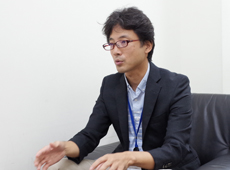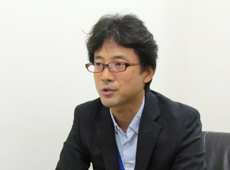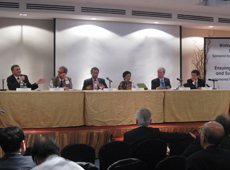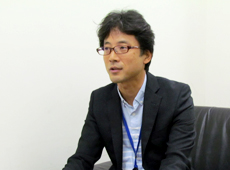
Debris Mitigation Left to Voluntary Initiatives
— In light of the fact that the space debris situation is becoming more serious, what international agreements have been made, if any?

In 2007, the United Nations General Assembly adopted the Space Debris Mitigation Guidelines drafted by the Committee on the Peaceful Uses of Outer Space (COPUOS). This is a “soft law” that aims to limit the generation of new space debris. A soft law is not legally binding – member states are left to make efforts on their own initiative. The guidelines specify, among other things, that rockets and satellites should be designed to produce no debris, and that satellites in low Earth orbit should re-enter the atmosphere within 25 years of ending their mission.
— What is COPUOS?
COPUOS is a forum for discussing the peaceful uses of outer space, established as a permanent committee of the UN after the Soviet Union launched the first artificial satellite in 1957. The Committee is made up of 84 countries (as of 2016), including Japan, the United States and Russia, and it creates international regulations for space, provides information, and supports space research. One of the treaties originated by COPUOS was the Outer Space Treaty, which came into effect in 1967. This treaty is like a constitution, in that it determines the responsibilities of states when they explore or use outer space. For example it forbids the deployment of nuclear weapons and other weapons of mass destruction in space.
A Code of Conduct for All Space Activities
— Do you feel that international awareness of space debris is increasing?

Yes. I think the risks that debris pose to spacecraft are now universally recognized. The Chinese anti-satellite missile test in 2007 was particularly a wake-up call. The test drastically increased the amount of debris, and the global media reported that this put spacecraft in danger. So now even the average person knows about the debris problem.
For a long time, debris caused by military spacecraft such as spy satellites was discussed primarily at the Conference on Disarmament in Geneva, but awareness of the debris threat has been growing, and many people now believe that civilian and military debris should be considered together, and that the international community should take action jointly. Today, however, it wouldn’t be practical to create a new legally binding treaty partly because there are more and more players active in space. That’s why a code of conduct, or “soft law,” that applies to both military and civilian spacecraft is being considered.
— Are any steps being taken to formulate this code of conduct?
Multilateral efforts to draft an International Code of Conduct for Outer Space Activities have been happening for about past nine years. In 2008, the European Union proposed the creation of such an international code of conduct that would include prevention of space debris, covering both military and civilian activities. In 2012, Japan announced that it would actively participate in the formulation of this code. I have personally participated in these discussions from the very beginning, and have been reviewing the draft code of conduct with the assistance of JAXA and other space agencies.
Since 2012, multilateral talks have been held in Kiev, Bangkok and Luxembourg. In July 2015, the EU organized multilateral negotiations on the space code of conduct at the United Nations in New York. One hundred and nine countries (including Japan), two international organizations, and six NGOs took part. So we are taking steps toward completing the code. It’s not easy to reach an agreement, but we are persevering.
The Importance of Increasing our Understanding of Debris
— What difficulties does formulating an international code present?
One problem is making all the countries aware of how debris is produced and what risks it creates. Without this awareness, we can’t make universal rules. So we have to start by making people aware of how serious the debris problem really is.
The next thing we need is legitimacy in the process. The way the rules are established is important. For example, if the rules are made under the aegis of the UN – which fundamentally rests on the principle of multilateralism – then everyone is aware that developing countries participate on an equal footing. However, it has proven very difficult to make progress in formulating a new legally-binding treaty under the UN. Indeed, no treaties about space activities have been agreed since the 1960s and 70s when COPUOS created legally-binding instruments related to space like the Outer Space Treaty. On the other hand, if rules decided by developed countries were unilaterally imposed, developing countries would probably not go along. Negotiations must take into account the perspectives of developing countries. I think this is one of the difficulties of international rule-making – the need to find an approach that produces the best outcome while taking all perspectives into account.
— How do you create awareness about space debris around the world?
One example is the Workshop on the Protection of the Space Environment, held by Japan’s Ministry of Foreign Affairs in Malaysia in 2012. It was held during the 19th Session of the Asia-Pacific Regional Space Agency Forum (APRSAF-19), which was co-sponsored by JAXA and the Ministry of Education, Culture, Sports, Science and Technology. I think it was a good opportunity to build awareness among the Asia-Pacific countries that are involved in space, by exchanging opinions on measures to minimize debris creation and so forth. I think just sharing the awareness of the need for regulation to protect the space environment was a particularly great achievement.
JAXA’s Contributions to Foreign Policy
— Could you tell us about JAXA’s international contributions toward a solution to the space debris problem?
 Workshop on the Protection of the Space Environment, December 2012.
Workshop on the Protection of the Space Environment, December 2012.
One such instance in which I was directly involved was JAXA’s contribution to the International Code of Conduct for Outer Space Activities. We got a lot support from JAXA in the talks on the code. For example, part of the code says that a country should be informed in advance when one of its satellites is approached in a way that might be dangerous. Not knowing the technical details, we couldn’t define “approach.” JAXA kindly provided us with all kinds of technical details.
JAXA has been wrestling with the debris problem since the days of NASDA. There were worries even back then about the increasing amount of debris, and the fact that spacecraft are being endangered by debris has been widely understood since COPUOS published the Technical Report on Space Debris in 1999. In the midst of this, NASDA – one of JAXA’s predecessors – proposed to the Inter-Agency Space Debris Coordination Committee (IADC) that there should be a universal standard for reducing space debris. NASDA took the lead on this, and managed to establish the IADC Space Debris Mitigation Guidelines in 2001. The guidelines that were adopted by the UN in 2007 were based on this document.
— What would you like to see from JAXA in the future?

I would like to see an educational program for the space agencies of developing countries to increase international awareness of the debris problem. JAXA is offering developing countries the opportunity to release ultra-small satellites from Japanese Experiment Module “Kibo” on the International Space Station, but I think it would be good if they would teach them about debris mitigation and not just satellite technology. If people involved in space talk to each other in their common language, then the message about the dangers of debris will get through without becoming politicized. Building understanding of the debris problem is an important step towards creating new norms.
JAXA is also developing its own debris removal technology, and I would like to see it lead the world in that field. If we can lead with technology, then we may be able to lead with standards as well. Companies that first developed automobile technologies set the standards, and then others followed them. In this respect I believe it’s the same. Japan’s space projects have always had a peaceful purpose, so we have a clean image, and confidence in our technology is very high. If the world hears that Japan has developed this kind of technology, then they will surely place their confidence in it. I have high hopes that JAXA’s technology can make a positive contribution to our foreign policy.
Michiru Nishida

Special Advisor for Arms Control, Disarmament and Non-Proliferation Policy, Ministry of Foreign Affairs of Japan
Mr. Nishida graduated from the Monterey Institute of International Studies and earned an M.A. in International Policy Studies with a Certificate in Non-Proliferation Studies at the James Martin Center for Nonproliferation Studies. He served in the Non-Proliferation, Science and Nuclear Energy Division of the Ministry of Foreign Affairs of Japan, the Delegation of Japan to the Conference on Disarmament in Geneva, the Space Policy Division of the Foreign Policy Bureau, as well as Arms Control and Disarmament Division of the Disarmament, Non-Proliferation and Science Department of the Ministry of Foreign Affairs of Japan, and is currently on staff at the Embassy of Japan in Washington, D.C.
[April 26, 2017 ]
- Preventing Collisions Between Debris and Spacecraft
- Harnessing the Power of the Private Sector to Clean Up Space Junk
- Global Efforts to Deal with the Problem of Space Debris